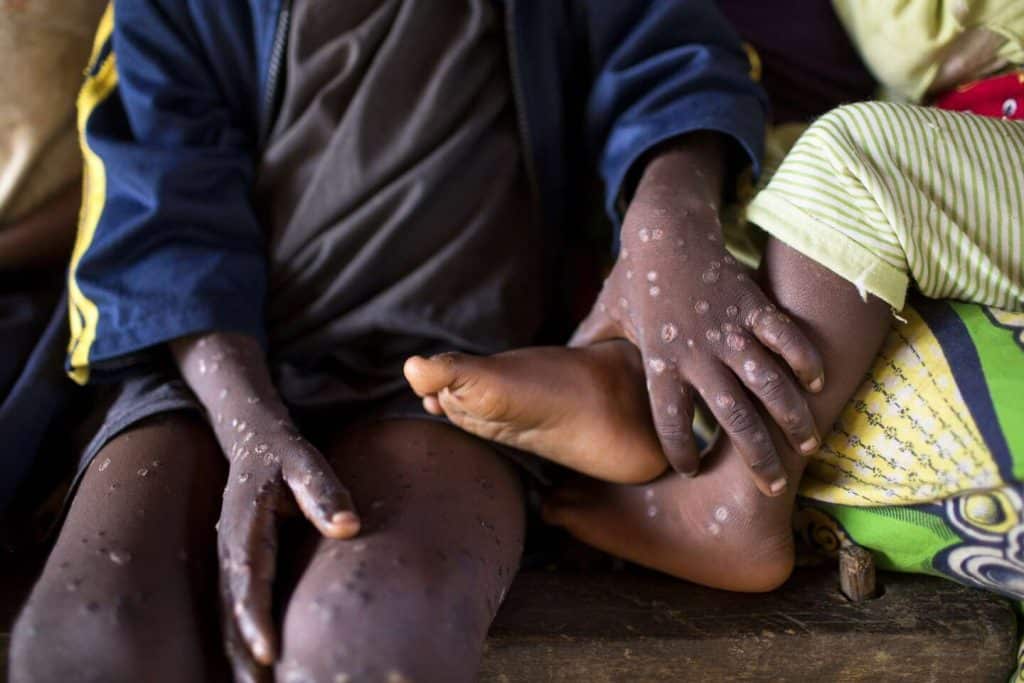

HIV/AIDS Mpox NACA
The African continent is on the brink of declaring a Public Health Emergency of Continental Security (PHECS) as the Mpox (formerly Monkeypox) outbreak spreads rapidly across multiple countries.
EKO HOT BLOG reports that Dr. Jean Kaseya, Director General of the Africa Centre for Disease Control (Africa CDC), hinted at this during a webinar on Thursday, focusing on the outbreak in the Democratic Republic of Congo and other African nations.
Mpox, a viral infection that affects both humans and animals, is characterized by a blistering rash, fever, and swollen lymph nodes.
Although generally mild, the disease can lead to serious complications, particularly among vulnerable populations. The World Health Organization rebranded the virus in 2022 to reduce the stigma associated with its original name.
Dr. Kaseya underscored the urgent need for a unified and coordinated response to manage and contain the outbreak.
He noted that the PHECS declaration, expected next week, would be crucial in mobilizing resources, improving cross-border collaboration, and strengthening Africa’s health systems.
“We are taking decisive actions to protect our people. Mpox is a reality, and Africans are dying,” Dr. Kaseya stated during the webinar.
He also highlighted the importance of involving Africa’s youth in combating the outbreak, emphasizing their potential to drive innovation and energy in the response efforts.
The PHECS declaration, guided by health experts and political leaders across Africa, aims to enable the rapid deployment of medical supplies, enhance the sharing of critical information, and bolster public health resilience across the continent.
The global community is closely watching Africa’s response, recognizing its implications for public health security worldwide.
Since January 2022, Africa has recorded 38,465 Mpox cases and 1,456 deaths, with a 160% increase in cases in 2024 compared to the previous year. The outbreak has spread to new countries, including Côte d’Ivoire, Kenya, and Uganda, with cross-border transmission, s*xual contact, and co-morbidities like malnutrition and HIV contributing to its proliferation.
Dr. Kaseya highlighted case studies from impacted nations, noting that Côte d’Ivoire reported its first outbreak involving a 46-year-old agricultural laborer and a 20-year-old student, both from Abidjan.
Africa Mpox Outbreak
In Kenya, a 42-year-old long-distance truck driver was identified as the first Mpox case at the Taita Taveta point of entry on the Kenya-Tanzania border. Uganda reported two female cases in the Kasese district, both imported from the Democratic Republic of Congo.
Dr. Kaseya emphasized that Mpox poses a significant risk with a 3.2% case fatality rate, particularly affecting children under 15.
He warned that without urgent action, the situation could worsen, threatening even more lives across the continent.
Click here to watch our video of the week:
Super Eagles coach Chelle begins squad overhaul after poor World Cup qualifiers. Travels to London…
Obasa Insists On Suit Against Meranda, Assembly Members. His counsel confirms they are awaiting the…
Rivers Emergency Rule: FG Yet To Receive Suit From PDP Governors. A PDP governor’s aide…